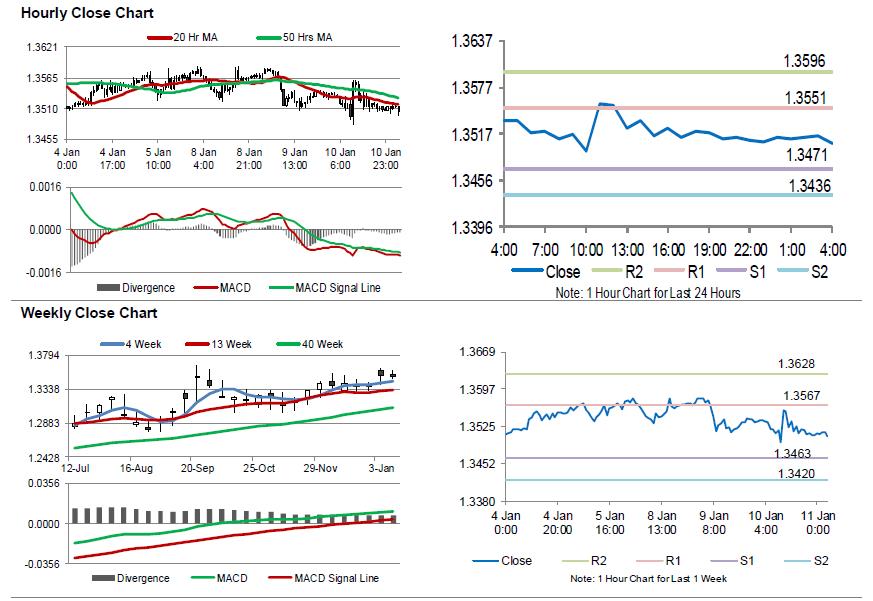For the 24 hours to 23:00 GMT, the GBP declined 0.24% against the USD and closed at 1.3507, after Britain’s total trade deficit unexpectedly widened in November.
Data showed that UK’s total trade deficit widened to £2.8 billion in November, marking the largest deficit since June 2017, thus suggesting that trade may crimp the nation’s fourth quarter economic growth. The nation had registered a revised total trade deficit of £2.23 billion in the prior month, while investors had anticipated the deficit to narrow to £1.5 billion.
Meanwhile, the nation’s construction output rebounded 0.4% MoM in November, undershooting market expectations for a rise of 0.8%. Construction output had registered a revised drop of 1.1% in the previous month.
On the other hand, the nation’s manufacturing production grew 0.4% on a monthly basis in November, exceeding market consensus for an advance of 0.3%, highlighting that the sector remained buoyant in the final months of 2017. In the prior month, manufacturing production had registered a revised advance of 0.3%. Also, the nation’s industrial production climbed 0.4% on a monthly basis in November, meeting market estimates and after recording a revised gain of 0.2% in the previous month.
In other economic news, leading think tanker, NIESR estimated that Britain’s gross domestic product (GDP) climbed more-than-expected by 0.6% in the three months to December 2017, compared to a revised similar rise in the September-November period.
In the Asian session, at GMT0400, the pair is trading at 1.3505, with the GBP trading slightly lower against the USD from yesterday’s close.
The pair is expected to find support at 1.3471, and a fall through could take it to the next support level of 1.3436. The pair is expected to find its first resistance at 1.3551, and a rise through could take it to the next resistance level of 1.3596.
Going ahead, traders would await the Bank of England’s credit conditions survey report, scheduled to release in a few hours.
The currency pair is trading below its 20 Hr and 50 Hr moving averages.

